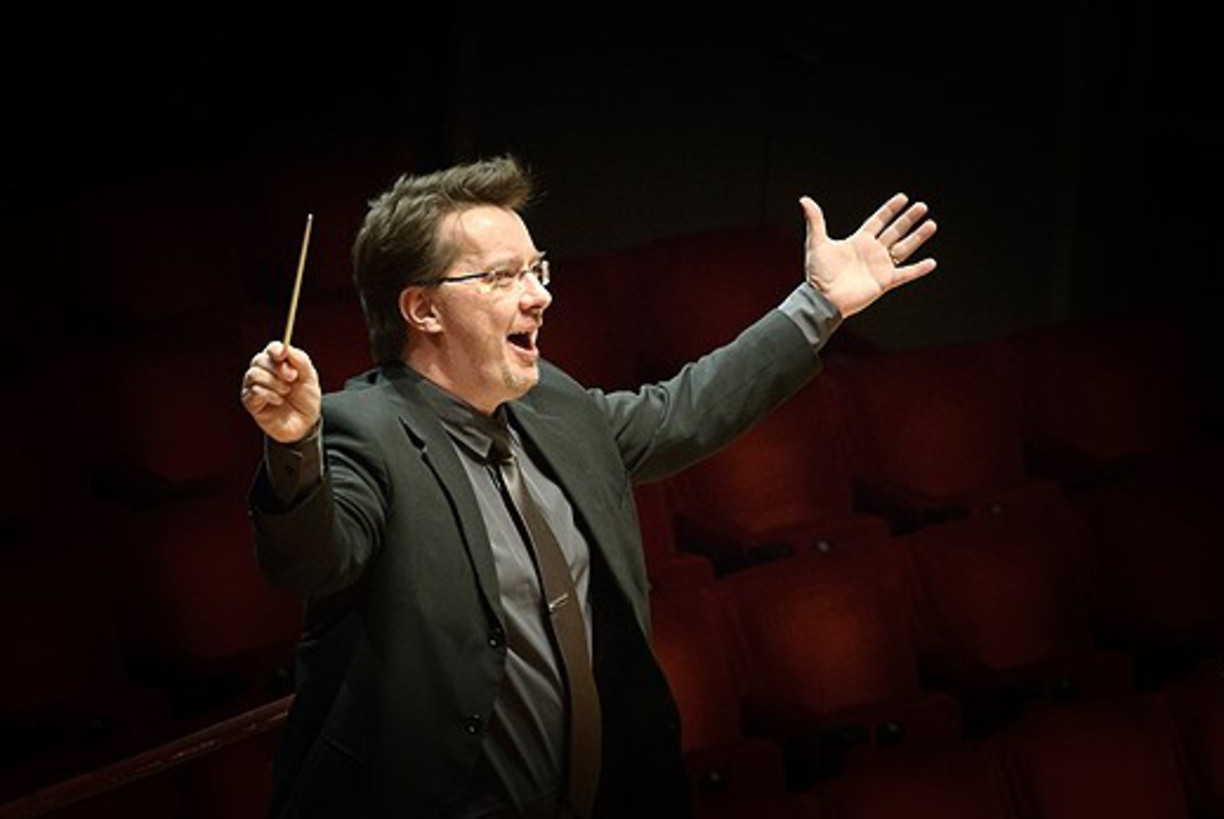
Meet a teacher – Petter Sundkvist, Professor of Orchestral Conducting
Students of orchestral conducting at the School of Music at Luleå University of Technology meet Professor Petter Sundkvist – a modern conductor with a broad repertoire. During his career he has conducted more than 100 premiere performances of contemporary music and 30 opera productions.
Hello there, who are you?
– I am a conductor and has worked professionally since 1989 as such. I have worked with everything from opera to chamber opera, symphony orchestra to chamber orchestra, baroque to contemporary music. From and to, I have worked at the School of Music in Piteå since 2000 and as professor since 2003.
In what courses students meet you?
– If you want to study orchestral conducting, there are four 7.5-point courses taught either over the semester or full year. These are Ensemble Leadership I and II, where you can also read Choral Conducting and Orchestral Conducting I and II. If you have a college degree, it is also possible to search in the master's program with conductions as your subject of choice. You meet me in some orchestral and ensemble productions.
How are you as a teacher?
– I grew up in a teacher's family and an inclusive educational ideals permeated the home. I believe in putting the knowledge into a larger context. I believe in to meet each student on their own merits, which means that I adapt instruction individually, sometimes demanding but for the most inspiring.
Why is it so fun to teach?
– Teaching is not a one-way communication. I feel that I learn a tremendous amount myself in the meeting with students who are mostly much younger but sometimes peers and older. I have received so much through all of the amazing teachers I myself had to study for. To now get to share this and the experience I have gained is something very nicely.
What do you want the students to get from your courses?
– The syllabuses clearly express what objectives we should reach. Because musical skills can not be measured in the same way as, for example, math skills, will also be targets certain extent personalized. In general, I can say that I especially wish what you take with you after completed courses is a hunger to self continue to plunge into the ocean of earth-shattering experiences and opportunities that art music is, whether it occurs as performers or listeners.
Why study music at Luleå University?
– We have great facilities and a highly qualified teaching staff. When UKA evaluated the country's artistic training in 2014, both our master's and bachelor's programs in music got top rankings.
Is there something specific in your career that you are particularly proud of?
– I want to highlight two things that warms a little extra. Partly series of CD recordings of Joseph Martin Kraus and the Swedish Chamber Orchestra. A work that went on for years and where we got help to highlight a composer from history's oblivion. I also want to highlight the formation of Norrbotten NEO in 2007 where Sweden for the first time got a full-time ensemble for contemporary art music.
Updated:
